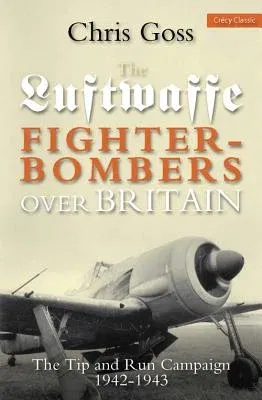As the Battle of Britain came to a close, the Luftwaffe began arming its
single-engined fighters with bombs, using them in preference to
twin-engined bombers against many daylight targets. Two units were
designated for these Jagdbomber (literally fighter-bomber)
attacks--10/JG 26. Their targets included shipping and coastal
installations, railways, gas holders and selected military and civilian
objectives. The detrimental effect on British morale caused by these
'Tip and Run' attacks was devastating.
How could the British military combat the raids effectively? How could
the local populations cope? Questions were asked in Parliament but no
effective answer was supplied. The locals lived in fear of where and
when the next would occur.
Luftwaffe Fighter-Bombers over Britain analyses the campaign from
March 1942-June 1943 using contemporary records and first-hand accounts
from both the German and British sides and highlights, amongst others,
unopposed attacks in London, Bexhill, Eastbourne, Hastings, Yeovil,
Salisbury, the Isle of Wight, Great Yarmouth, Torquay and Bournemouth.
Tactics are considered from both attacker and defender viewpoints, their
successes and their failures.
Incorporating almost 300 previously unpublished photographs, and packed
with detailed research, Luftwaffe Fighter-Bombers over Britain tackles
a previously little known aspect of the World War II air war and will
appeal to those experiencing the raids, those with an interest in local
history, the military researcher and aviation historian.

